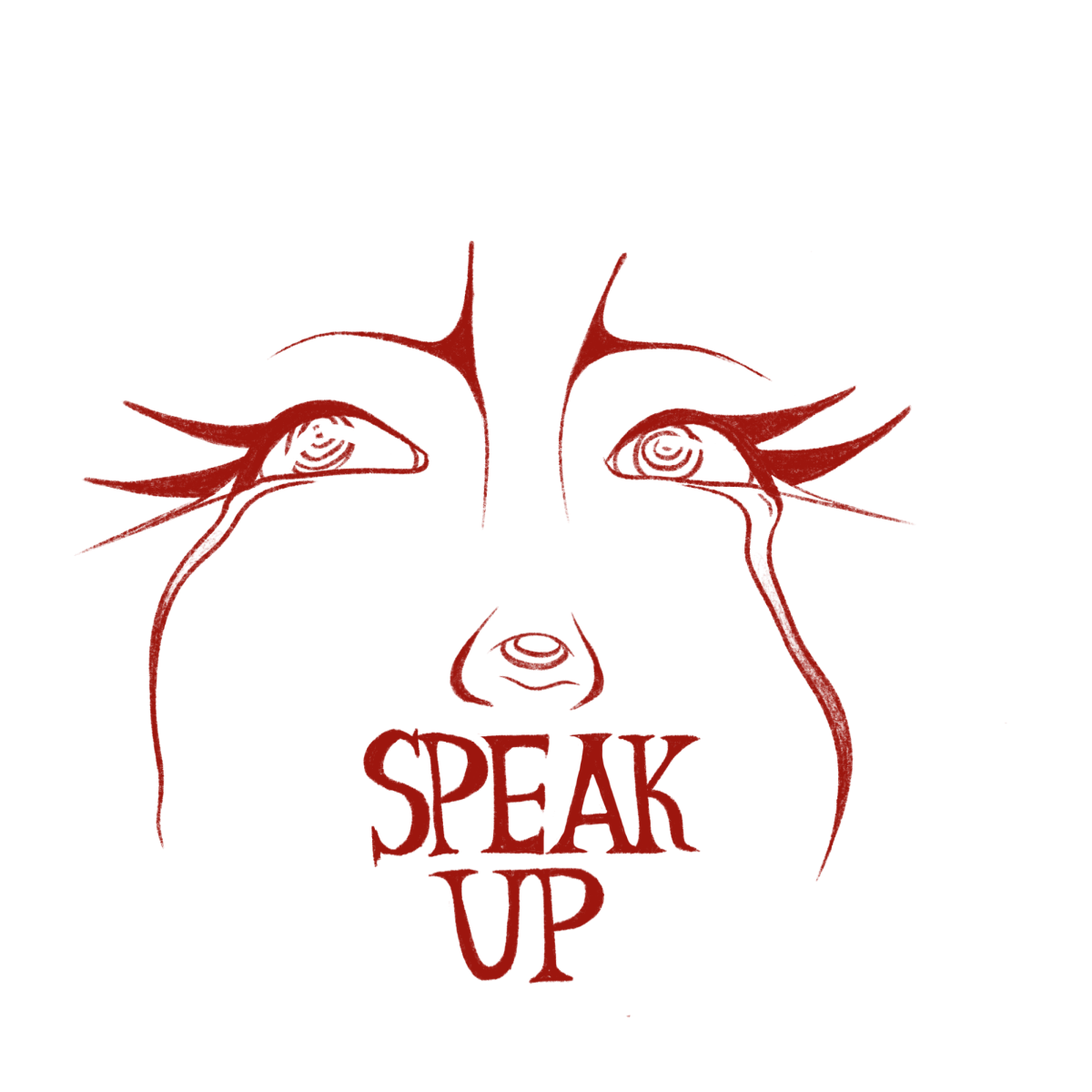This article was originally published in the Welcome Home print issue of The Daily Utah Chronicle, originally in stands on August 25, 2024. It has not been updated and some information may be out of date.
While University of Utah students love packing “the Red Zone” at Rice Eccles stadium, the term “Red Zone” is used differently in the realm of student safety.
“The Red Zone” occurs during the fall semester and is when sexual assault peaks on college campuses. According to the Center for Women and Families, more than 50% of college sexual assaults occur in the months of August through November, with freshman females most likely to be assaulted. However, anyone can be assaulted regardless of their gender or age.
Freshman may be more susceptible as they are “new to the area, have less parental supervision and may participate in new activities such as alcohol and drug use as they try to meet new people.”
Miyo Strong is the director of the Smart Defense Program at the Elizabeth Smart Foundation. The mission of the foundation is “bringing hope and ending the victimization and exploitation of sexual assault through education, healing and advocacy,” which includes addressing sexual assault on college campuses. The Smart Defense Program is a self-defense training course for women and girls.
Strong said the first step to addressing the problem is speaking about it openly.
“Campuses, especially, don’t like to talk about sexual assault because it can bring fear, but fear is healthy,” Strong said.
Sexual Assault Prevention
Regarding college campuses, Strong explained that some of the safest campuses have “hands-on, trauma informed staff and police that are bold in the way they address sexual assault.”
As far as personal safety protocols, Strong has a few suggestions for university students, especially women.
First, travel in groups. Second, use apps like Parachute or Noonlight to alert authorities and emergency contacts when you are in an unsafe situation. Self defense, such as that taught by the Elizabeth Smart Foundation, can also be used to fight and scare off a perpetrator.
Strong suggested using a buddy system as an effective tool to prevent sexual assault on and off campus, as it ensures awareness and mutual accountability of group members.
According to a Brigham Young University study published in 2022, dating apps have been linked to hundreds of cases of sexual assault in Utah. College students were among the victims of these cases, representing about 22%.
The Rape, Abuse and Incest National Network (RAINN) provides tips to stay safe while using dating apps. These include video calling before meeting in person, sharing your date’s profile and details about where and when you plan to go on the date with a friend and meeting in a public place with plenty of other people around.
While taking precautions can be beneficial for targeted groups, Strong said the only true prevention of sexual assault comes by “reaching the male population in a way that’s not shame-based, in a way that opens up the conversation and the dialogue, and helps educate them on the realities of sexual violence.”
“Many, many college guys that I talk to don’t even understand what rape culture is or what role they play in it,” Strong said. “The men that are already concerned about sexual violence are already in the room, at the table trying to help. However, it’s the general population who aren’t rapists that don’t see it as a pressing issue.”
Strong raised the Smart Foundation’s Men’s Program as an example of outreach focusing on this population. This program educates participants about rape culture and sexual assault to address the root of the issue.
“Honestly, there’s a lot of healing out there, there’s a lot of resources out there,” Strong said. “Women’s self defense is geared for empowerment, but we’re not the perpetrators 98% of the time.”
The Centers for Disease Control and Prevention list several strategies for preventing sexual violence, including “mobilizing men and boys as allies” in order to “promote social norms that protect against violence.”
All students at the U are required to complete a Community Standards Course once a year, which includes information on sexual assault prevention. In recent years, there has been a shift away from “no means no” to “yes means yes” when describing consent, reflected in state laws and university policies. According to University Policy 1-012A, consent “means affirmative, unambiguous and voluntary agreement.”
RAINN provides additional guidance about consent and suggests regularly checking for consent with verbal confirmation.
Resources for Victims and Survivors
Strong said it doesn’t occur to many people to seek out support from campus resources. Various resources are compiled at the website sexualassault.utah.edu.
Victims can report sexual assaults on campus through the Office of Equal Opportunity and Affirmative Action. One can also report to the police, crisis hotlines or hospitals. It is advised that victims go to the ER for a forensic exam as soon as possible or within five days of the incident. These exams are free.
Regardless of one’s choice to report or not, and pursue legal action or not, the U has resources for victims. In a written statement, the Center for Campus Wellness said the Victim Survivor Advocacy program provides “free, confidential and trauma-informed support services to students, faculty and staff who have experienced interpersonal violence (i.e. domestic and dating violence, sexual assault and rape, sexual harassment, stalking, etc.)”
Some examples of this support include safety planning, academic assistance, mental health or medical referrals, resource connection and information, reporting assistance, psychoeducational groups and survivor-centered events.
Additionally, the Center for Campus Wellness is introducing its new Peer Advocacy Liaisons program this fall.
“The PALs program aims at increasing our program’s reach to support students, faculty and staff who are survivors of various forms of violence, where they will promote peer support for survivors in our community through implementing advocacy events, awareness campaigns, and other initiatives,” they said in an email statement to the Chronicle.
The Utah Coalition Against Sexual Assault also has information about sexual assault and resources in Utah on its website.
In addition, RAINN has a free and confidential hotline as well as tools for victims and advocates.
The Smart Foundation has a scholarship fund that people can apply for in order to afford necessities such as Smart Defense courses, rape kits, attorney fees, Ubers and rent.
Supporting Victims and Survivors
When asked how one can best support a victim, Strong said, “It’s simple: you listen.”
“Oftentimes when you have survivors of sexual violence, the control has been taken away from them, so give them back the control to make decisions based on what they’re ready for,” Strong said. “You don’t need to ask for details or force them to relive anything.”
Strong said another thing to be aware of is self harm being a common side effect of any trauma.
“Making sure that people are in a safe space away from their perpetrator, or figuring out how, if they’re ready, to get out of that situation [is important],” she said.
For friends, family and partners of someone who has experienced sexual assault, Strong suggests “talking and learning to educate yourself on ways resources are changing” to combat feelings of helplessness.
The Center for Campus Wellness said one way students can get involved on campus is through their Compassionate Responses workshop, relevant for “anyone wondering what to do when someone discloses that they have experienced harm from: relationship/dating, sexual, and or family violence; stalking and or sexual harassment.”
Strong emphasized the importance of taking care of one’s own well-being while supporting a survivor.
“That’s a lesson I learned the hard way,” she said. “It’s hard to not absorb all that energy and take that on.”
She said “there’s something to this self-care phenomenon” that has risen in the last 10 years.
“Disconnection is great,” Strong said. “Put your phone down, get out in nature, and breathe fresh air. Also, going to therapy is helpful for processing and venting in a way that does not impact the people you are trying to support.”
Movement and Sexual Assault
Strong emphasized the importance of movement in processing trauma, relevant to both her personal experience and the work she does with the Smart Defense Program.
“Our body holds trauma, stress and stores emotions that are detrimental,” Strong said. “The only way to process or disperse that energy is going to be through movement. It doesn’t have to be aggressive, it can be as simple as sitting down and learning to breathe correctly.”
Strong said jiu jitsu was a form of movement that allowed her to fall back in love with herself after facing her own trauma.
Similarly, she said Elizabeth Smart is an avid runner. A large part of this, she said, was Smart not being physically able to run while held captive for months. Running then became “an expression of joy, an expression of freedom. It’s an expression of any way that she can feel powerful and capable.”
Strong said movement is helpful for both survivors and those supporting them to process their emotions and prevent them from impeding one’s ability to function.
“We have within us the ability to heal … to be powerful, to be strong, to be capable and to be confident,” Strong said. “Those things have to come from us. Nobody can give them to us. It’s got to come from within us, and moving your body, for me, is the fastest way to that.”




Ellie Brown • Sep 19, 2024 at 1:43 pm
A very important, thoughtful article; many useful/practical details! Do any groups provide prevention, defense, reporting programs for males (any & all males)? As one who spent some years working at Utah Dept. of Corrections in the past, I know Utah is a State which does not wish to acknowledge nor discuss the horrors of assault on young men. In Utah young men are discouraged from reporting and/or humiliated by even admitting an assault has occured. Any help there?